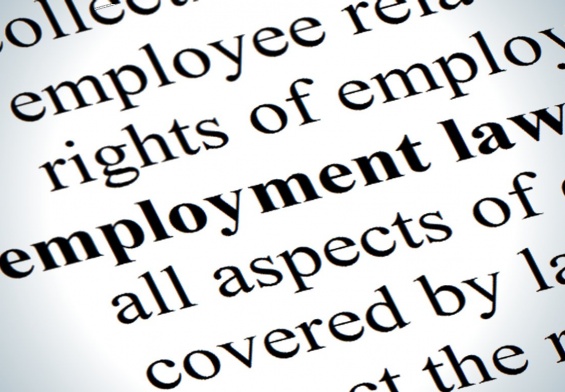It’s election time again, and you know that means heightened political tensions across the board, including in New Jersey workplaces. Political discussions in the workplace were taboo in the past, but now they’re frequent, which adds a lot of room for conflicts that affect productivity and morale. As a result, employers need to navigate employment law in NJ to manage these tensions and keep their workplaces balanced despite the politics of the period.
Rising Political Tensions and Their Impact on the Workplace
Political polarization is manifesting in workplaces across the country. A 2024 SHRM survey reveals that 57% of U.S. workers have experienced or witnessed incivility at work in the past week, and 34% believe the November election will make things worse. These numbers are significant, with 20% of employees reporting mistreatment at work due to their political views.
While political discussions were avoided before, 83% of employees now say they’ve talked politics at work. These conversations aren’t always constructive, with 61% of workers finding them stressful, compared to 50% in 2019. This shows that our political divisions have become more prominent and disruptive in everyday interactions.
Understanding Employment Law in NJ
Employers in New Jersey need to be aware of how employment law governs political expression in the workplace. Though the First Amendment doesn’t apply to private sector employees, there are other protections that might. For example, federal labor laws can protect discussions about workplace conditions, which might sometimes include politically related topics. Mistakes in restricting conversations like that could lead to labor rights violation allegations.
According to Gartner’s February 2020 survey, 47% of employees said the 2020 presidential election affected their ability to get work done, showing how important it is to have clear guidelines. Moreover, 31% reported that they found political discussions frustrating and disruptive, which reduces workplace morale even further.
Strategies for Employers to Maintain a Civil Workplace Atmosphere
Set Clear Guidelines on Political Discussions
Employers should establish clear policies about political expression in the workplace to set expectations. Gartner found that companies implementing such policies see better acceptance, with 75% of employees agreeing with the guidelines. Policies should define disruptive behaviors and outline possible consequences and apply them consistently to avoid being seen as biased.
It’s also important to differentiate between disruptive discussions and those that touch on legitimate workplace concerns. For instance, conversations around labor policies, social issues, or workers’ rights may be protected under labor laws. Employers should be prepared to navigate these scenarios carefully to avoid potential legal challenges tied to employment law in New Jersey.
Training Managers on Conflict Resolution Techniques
Managers play a huge role in keeping the environment balanced. Training programs should equip them to handle politically charged situations and de-escalate tensions. By fostering open communication and understanding, managers can help mitigate conflicts before they escalate into legal issues.
Companies that proactively address political discussions tend to see improvements in workplace dynamics. Training managers to approach conflicts with empathy and fairness can promote a culture of respect that goes beyond political divisions, making the work environment safer and more productive.
Encourage a Respectful and Inclusive Culture
Nearly half of employees (48%) support encouraging sociopolitical discussions as part of an inclusive company culture. Creating forums for employees to express their views in a structured manner can help address sensitive issues without sparking conflict. Techniques like dialogue circles or facilitated discussions allow employees to share concerns about current events in a safe space, reducing the risk of misunderstandings or confrontations.
Open communication fosters a respectful atmosphere where employees feel valued, even when views differ. By emphasizing core values like respect, inclusivity, and professionalism, employers can help reduce stress and maintain a positive workplace environment throughout the election season.
Addressing Remote and Hybrid Work Challenges During Election Season
Hybrid and remote work setups have made managing political discussions more complex. The lines between personal life and work are increasingly blurred, so political tensions can arise even outside the physical office. According to the Owl Labs 2024 report, 45% of workers have avoided the office due to political views expressed by coworkers or management. This suggests that political divisions can disrupt team cohesion regardless of where employees are working.
Employers should update remote work policies to address these challenges, emphasizing respectful communication during virtual meetings and in digital channels like email and team chatrooms. These measures maintain professionalism, supporting compliance with employment law in NJ and unifying the workforce.
Legal Risks and Best Practices for Employers in NJ
With reports of political harassment and discrimination claims on the rise, employers need to be careful. Gartner’s survey indicated that 29% of employees witnessed mistreatment based on political beliefs in 2020. Establishing a zero-tolerance policy for harassment related to political views, while still allowing room for open dialogue, can help prevent conflicts and protect the organization from potential lawsuits.
Regularly revisiting company policies on political activity and making sure they comply with state and federal regulations can help safeguard against legal risks. HR staff should be trained to recognize situations where political expression crosses into harassment and to address these incidents before they get worse.
Managing Post-Election Workplace Dynamics
The period after the election can be just as turbulent as the run-up to it. Employers should anticipate that some employee tensions may linger, which could affect productivity and team dynamics. Developing a post-election action plan that includes follow-up training, reviewing policies, and offering resources for employees dealing with political-related stress will help keep the workplace stable during this transition.
Dealing With The Election
Understanding employment law in NJ during an election year is a monumental task for business leaders. By setting clear policies, promoting open communication, and carefully addressing legal concerns, employers can navigate the complexities of a politically active workplace while minimizing disruptions. These strategies will help keep the focus on maintaining a productive, respectful, and legally compliant work environment.
Resources
https://fortune.com/2024/10/25/election-office-bosses-handle-political-divided-workforce/




